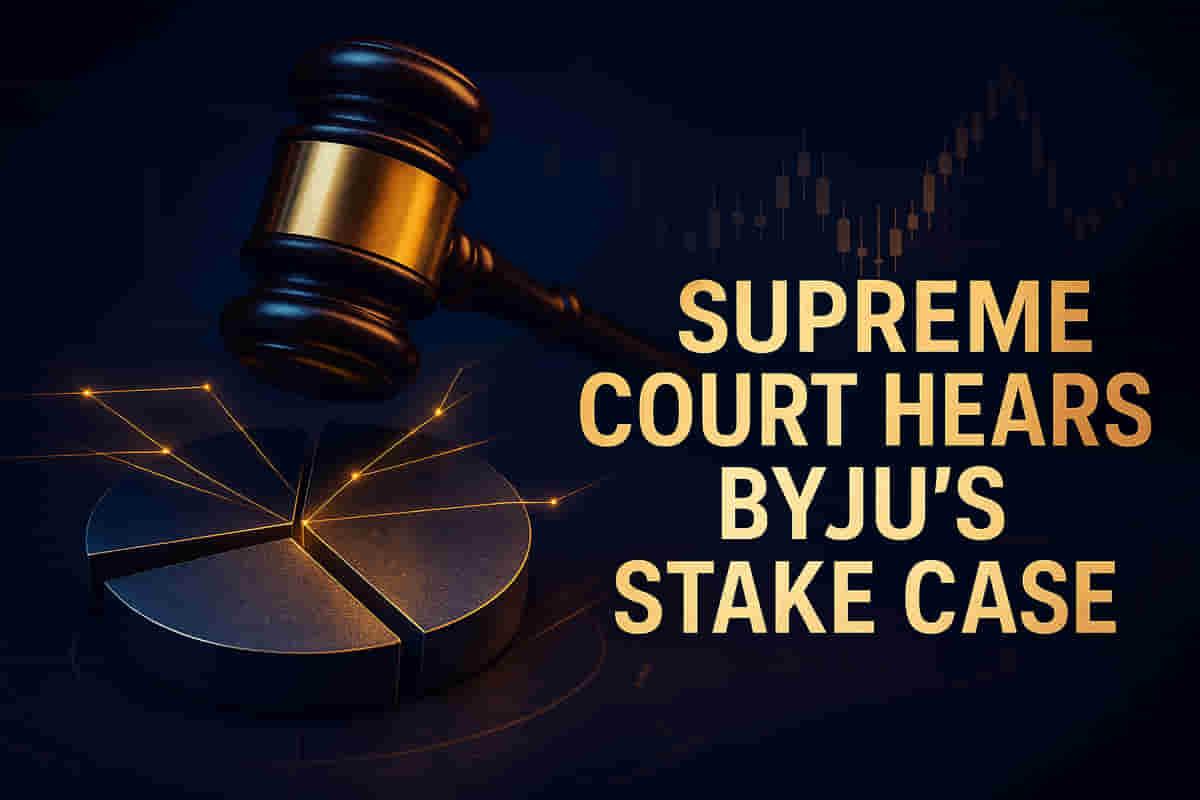Supreme Court Agrees to Hear Glas Trust Plea Against Aakash Rights Issue Affecting Byju's Stake
Startups/VC
|
31st October 2025, 6:59 PM

▶
Short Description :
Detailed Coverage :
The Supreme Court has scheduled a hearing for an appeal filed by Glas Trust Co, a US-based lender and creditor to Byju's parent entity, Think & Learn. The appeal challenges a recent decision by the National Company Law Appellate Tribunal (NCLAT) which refused to halt an Extraordinary General Meeting (EGM) of Aakash Educational Services. Aakash's EGM was scheduled to approve a rights issue, a move that could significantly shrink Byju's stake in Aakash from 25.75% down to below 5%. Glas Trust contends that this rights issue, along with the prior increase in Aakash's authorized share capital, breaches earlier directives from the National Company Law Tribunal (NCLT). They specifically reference an NCLT order from November 2024 that prohibited consequential actions on Aakash's October 2024 board resolutions, and a March NCLT order that barred any dilution of Think & Learn's shareholding. Furthermore, Glas Trust asserts that under the Insolvency and Bankruptcy Code, any action that reduces Think & Learn's asset value, including its stake in Aakash, must be stopped, as Think & Learn is currently undergoing corporate insolvency resolution. Glas Trust, which holds a dominant voting share in the committee of creditors for the bankrupt edtech firm, alleges that Aakash's rights issue is a calculated effort to devalue Byju's and circumvent existing court mandates. Prior attempts by Glas Trust to secure a stay on Aakash's EGM were also rejected by the NCLAT and the NCLT's Bengaluru bench.
Impact: This legal dispute introduces further uncertainty for Byju's and its associated companies, potentially affecting its overall valuation and the process of asset recovery for its creditors. The Supreme Court's ruling could establish significant precedents for how asset dilutions are managed during insolvency proceedings within the edtech sector. Rating: 7/10 for investor relevance, 4/10 for broad market impact.
Difficult Terms: * **Rights Issue**: A corporate action where a company offers new shares to its existing shareholders, usually at a discount, to raise capital. * **Committee of Creditors (CoC)**: A group formed under the Insolvency and Bankruptcy Code, comprising financial creditors of a corporate debtor, to collectively make decisions regarding the resolution process. * **National Company Law Appellate Tribunal (NCLAT)**: An appellate tribunal that hears appeals against orders of the National Company Law Tribunal (NCLT). * **National Company Law Tribunal (NCLT)**: A quasi-judicial body in India that adjudicates issues relating to companies. * **Corporate Insolvency Resolution**: The process under the Insolvency and Bankruptcy Code where a debtor company facing financial distress is given an opportunity to resolve its debts and continue as a going concern. * **Status Quo Order**: A court order that maintains the current state of affairs or prevents any changes until further notice or a final decision is made.